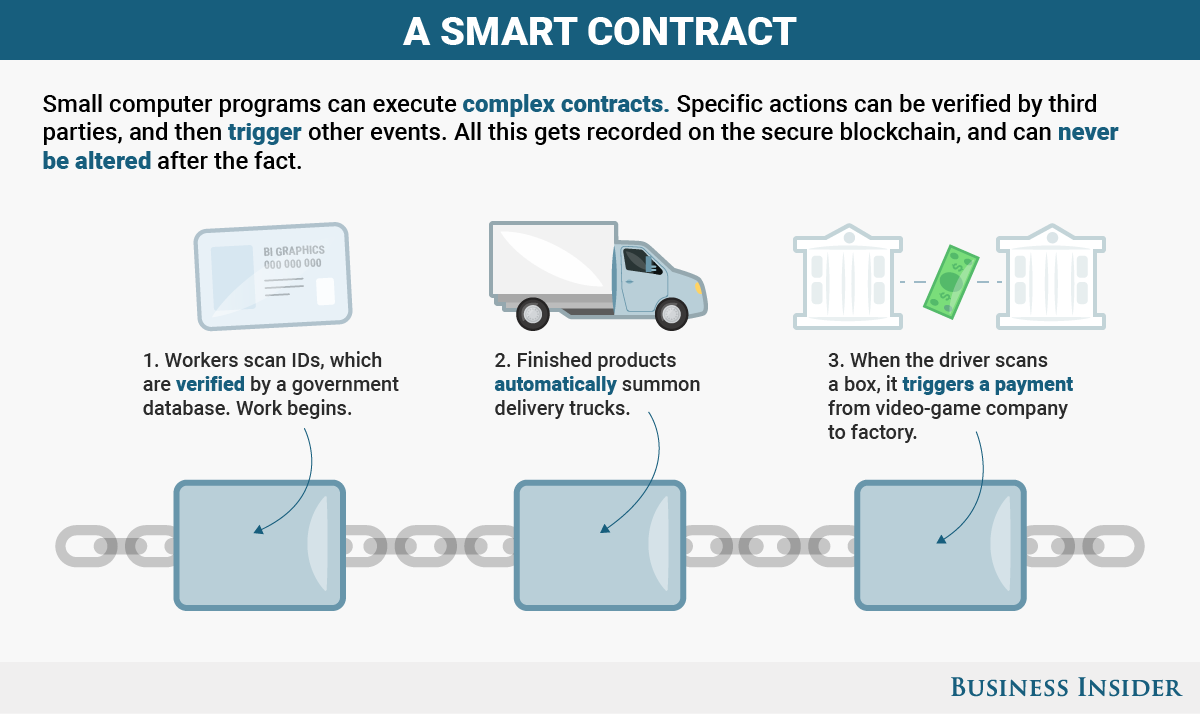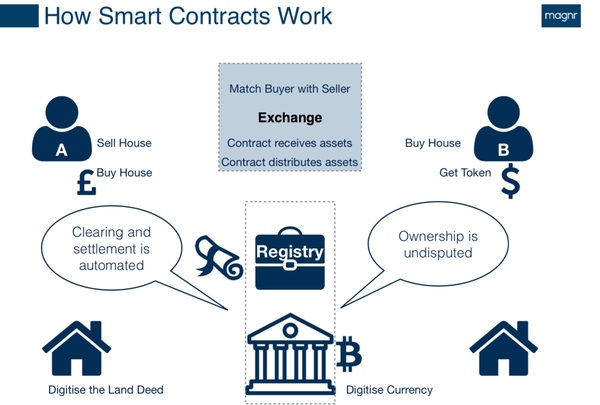How can smart contracts be useful for businesses? Part VI
.jpg)
Supply chain use case: exchanging value through a distributed ledger
In a supply chain, transactions like paying for a shipment of goods could be administered within the system using a cryptocurrency or cryptocurrency-like system. Handling the transactions in this way within the supply chain would provide incentives to participate, potentially enabling faster transactions and payment clearing. In addition, it might also enable businesses within the supply chain to automate some of these interactions in ways that would not be feasible in centralised systems.
For example, a smart contract could allow the automatic release of payment in response to the injection of data from a trusted third party confirming the delivery of a specified product. Both the buyer and seller in this example could trust the system to carry out the terms of the contract – even if neither completely trusted the other party. Finally, the inclusion of transaction costs might encourage members of the network to ensure they are using the system effectively and efficiently.

However, many businesses trying to build applications on top of distributed ledgers have concerns about building cryptographic asset exchange mechanisms into their products and services. Some of the concerns raised during our interviews stem from the needs of users of the system, both in terms of usability and comfort. Many of our interviewees questioned whether users would be willing to learn the procedures required to actually use cryptocurrencies and questioned whether they would be prepared to rely on existing volatile cryptocurrencies as a mechanism for exchange. In response to this, some businesses have taken the approach of using the distributed ledger to keep a record of payments, but actually process those payments off the chain using traditional methods, such as bank transfers.
Calogero Scibetta from Everledger said: "We have never been involved in cryptocurrency at all. We don’t see a cryptocurrency element as a must have because you will have specific transactions and needs and these will always occur in fiat currencies but we don’t necessarily need crypto for that. For me it’s not a must - you can if you want, but…"
Although these types of approaches might be accused of sacrificing some of the advantages of smart contracts where payment is handled entirely on a distributed ledger, some argue that the systems retain advantages over manual, centralised approaches.
Phil Barry from Blokur said: "It’s certainly a misconception of lots of people that making payments happen faster is exclusively to do with the payment system and that’s not really true. We can send money quite quickly to lots of different places; the reason why people get paid late is nothing to do with whether you’re using Bitcoin or Ether or PayPal or a bank or whatever, it’s to do with working out who is the right person to pay and all of the challenges that go into all of that. You can separate out the two things and so I concluded some time ago that getting people paid faster and more reliably did not require using cryptocurrency."

Whether or not systems require or enable users to exchange value through the system does not necessarily have an impact on how the system is designed to run. For example, systems that do not enable value exchange can be built and run on existing public ledgers, and only the operation of the system needs to be paid for in cryptocurrency. However, this is not exposed to the users of the system.
As with both data recording and edge cases (the first and second challenges outlined above), it is possible to approach these payments in different ways – by relying on distributed ledger-based cryptocurrencies to process transactions, relying on traditional payment mechanisms, or not recording or transacting value at all. Again, these approaches are not necessarily exclusive; within a single platform designed for a particular use case, different parts of the system could adopt different approaches.

Jess Houlgrave from Codex Protocol said: "As far as cryptocurrency, that is just one aspect of the technology. Codex is an infrastructure layer and not a direct application layer, so applications are built on top of that infrastructure - some of which may involve individuals interacting with cryptocurrency and some of which won’t. "
Whether or not businesses decide to exchange value through the distributed ledger will depend on the industry context and the willingness of potential users to participate. Our interviewees broadly agreed that exchanging value through the system itself might be useful, but that it was probably out of reach in most current use cases.
Feel free to comment.
Best regards,
Adrian